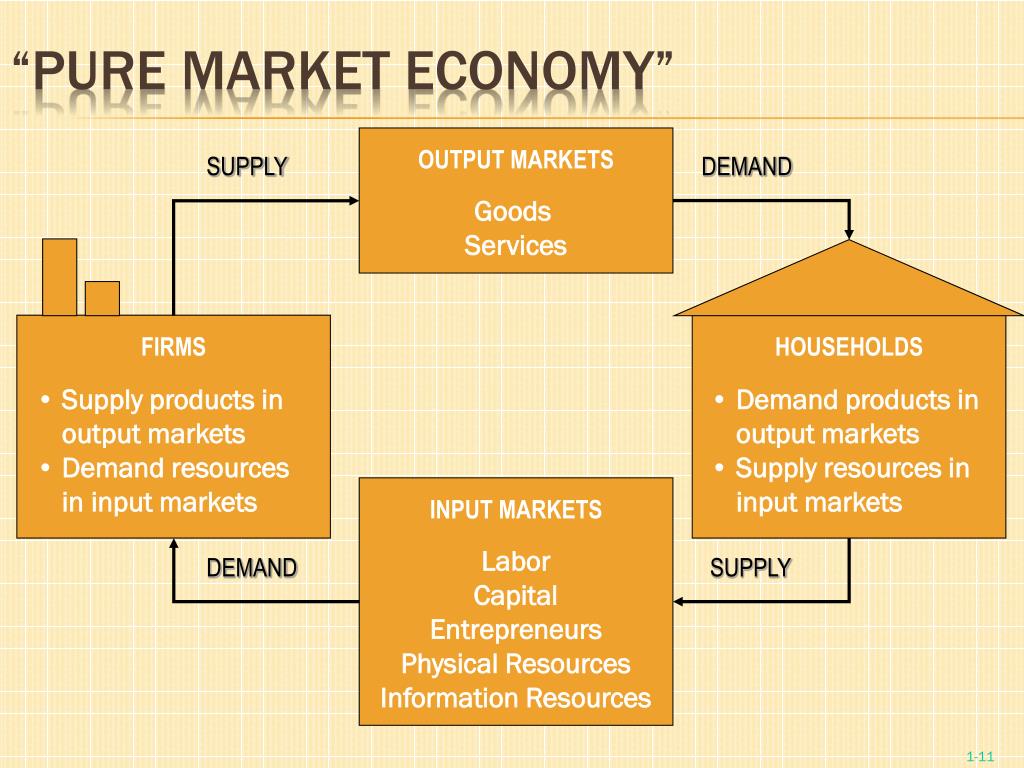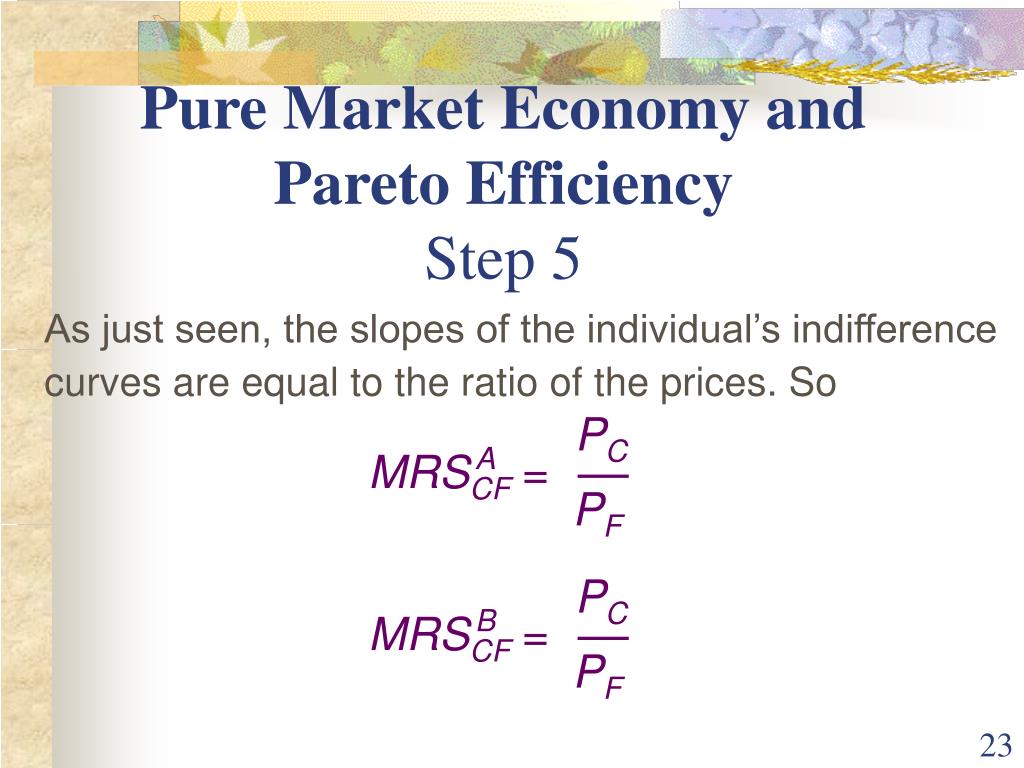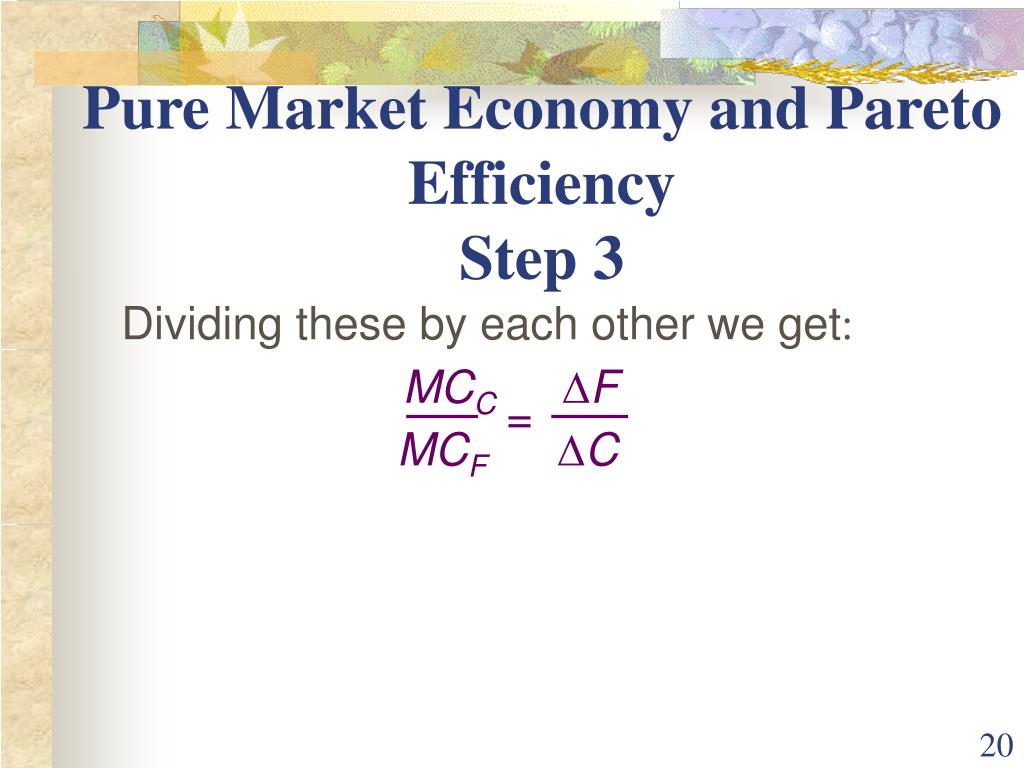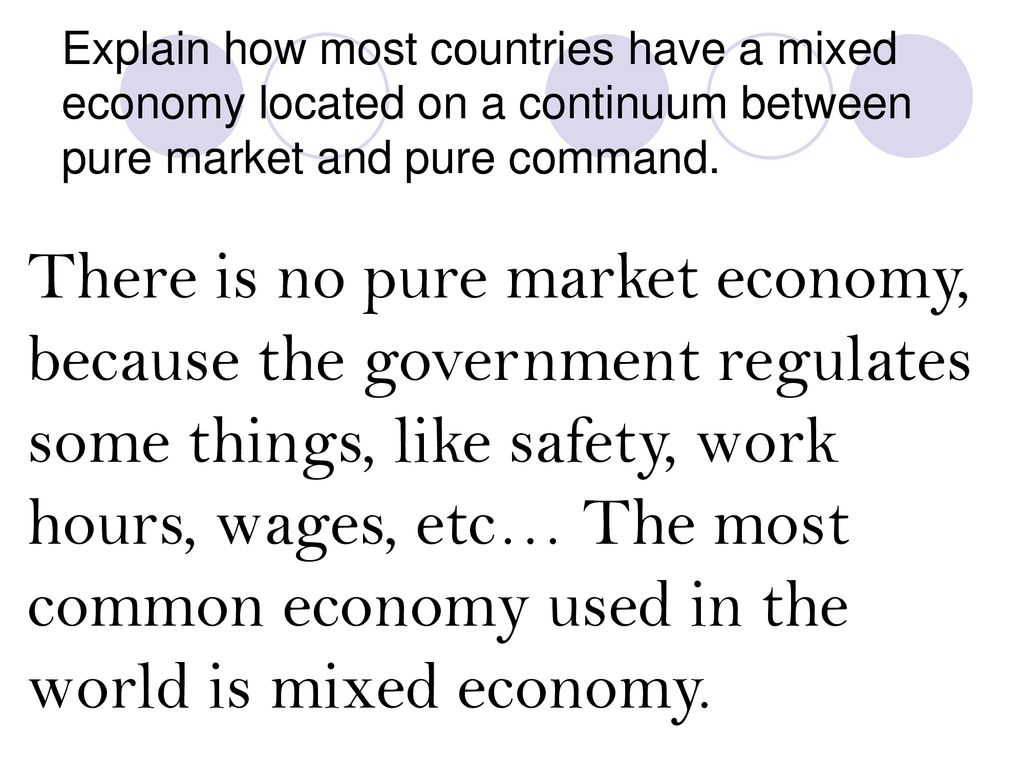A Pure Market Economy Is Sometimes Called Pure

Economic debate intensifies as the concept of a pure market economy, sometimes termed "pure capitalism," faces renewed scrutiny amidst growing concerns about inequality and market failures.
This article dissects the theoretical underpinnings of a pure market economy, examining its potential benefits and inherent limitations in the face of contemporary socio-economic challenges. It aims to provide a clear, concise understanding of its core principles and real-world implications.
Defining the "Pure" Market
A pure market economy, in its idealized form, operates without any government intervention whatsoever. Adam Smith's "invisible hand" is the sole regulator, dictating prices, production, and distribution of goods and services.
Individual actors, driven by self-interest, make economic decisions based on supply and demand.
There are no regulations, subsidies, tariffs, or taxes to distort the natural market equilibrium.
Key Characteristics
Private property rights are absolute. Individuals and businesses have complete control over their assets and resources.
Free markets prevail. Prices are determined solely by the interaction of buyers and sellers.
Competition is unfettered. New businesses can enter and exit the market freely.
Consumer sovereignty reigns. Consumer preferences drive production decisions.
Theoretical Advantages
Proponents argue that a pure market economy fosters unparalleled efficiency. Resources are allocated to their most valued uses through price signals.
Innovation is incentivized. Businesses are constantly striving to create better and cheaper products to gain a competitive edge.
Economic growth is maximized. The absence of government interference allows businesses to thrive and expand.
"The market is a mechanism for sorting out the allocation of scarce resources. It's a powerful engine for wealth creation," – Milton Friedman.
Inherent Limitations and Criticisms
Critics point to the potential for significant market failures. These failures include externalities, such as pollution, which are not reflected in market prices.
Public goods, like national defense, may be under-provided because they are non-excludable. This means that individuals can benefit from them even if they don't pay.
Information asymmetry can lead to exploitation. One party in a transaction may have significantly more information than the other.
Equity and Social Welfare Concerns
Income inequality is a major concern. A pure market economy can exacerbate disparities in wealth and income.
Lack of social safety nets leaves vulnerable populations at risk. Those unable to compete in the market may face poverty and destitution.
Monopolies and oligopolies can stifle competition. Large firms may use their market power to exploit consumers and suppress innovation.
Real-World Examples and Near Misses
No nation has ever truly implemented a pure market economy in its entirety.
However, some countries have embraced market-oriented policies to a greater extent than others.
Hong Kong, before its integration with China, often cited as a near example, but even it had government interventions in housing and other sectors.
The economic liberalization of countries like Chile in the 1970s and 80s, under the influence of "Chicago School" economics, offers some insight into the potential impacts of deregulation and privatization. These reforms led to significant economic growth but also increased income inequality.
The Role of Government: A Constant Debate
The extent to which government should intervene in the economy remains a contentious issue.
Advocates of limited government intervention argue that markets are generally self-correcting. They believe that government intervention can create unintended consequences and distort market signals.
Those who favor a more active role for government argue that intervention is necessary to correct market failures, protect vulnerable populations, and promote social welfare.
The Future of Market Economies
The debate over the role of markets in society is ongoing. The recent rise of populism and nationalism in many countries suggests a growing dissatisfaction with globalization and free market policies.
The COVID-19 pandemic has further highlighted the importance of government intervention in addressing public health crises and economic recessions.
Discussions continue amongst economist about the optimal level of government involvement in economy. The world looks to balance the benefits of free markets with the need for social equity and environmental protection.
Further analysis and research are needed to understand the long-term consequences of different economic policies.






.jpg)











